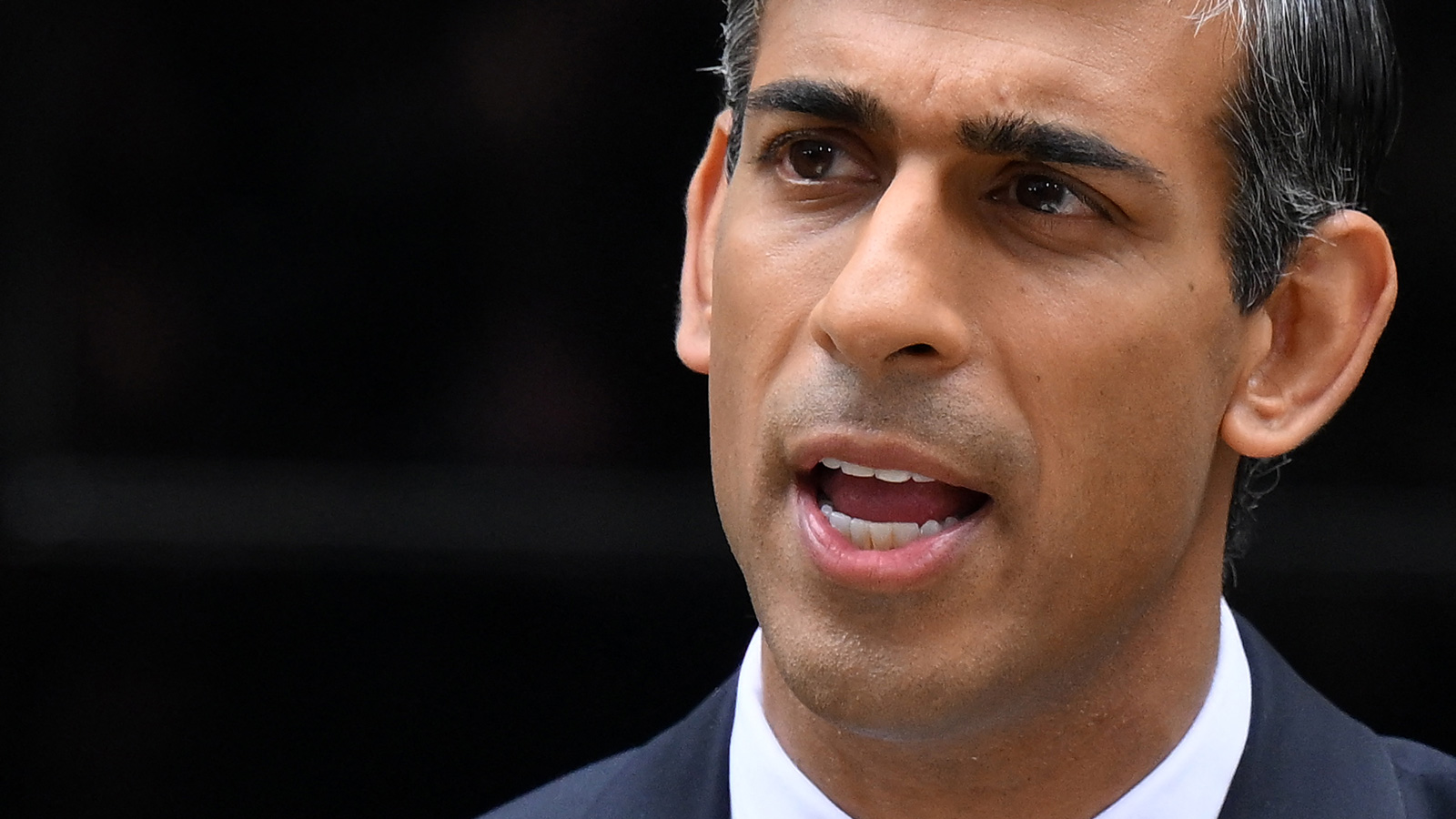Four years ago, the United Kingdom became the world’s first major economy to legally commit to achieving net-zero greenhouse gas emissions by 2050.
The unprecedented move came even as the country had already reduced emissions by 42 percent from 1990 levels — mainly by slashing its dependency on coal and oil for electricity generation. It cemented the U.K.’s role as a global climate leader, but that position is now showing cracks.
Last week, Prime Minister Rishi Sunak announced an about-face on some of the country’s core decarbonization initiatives, citing the need to relieve costly burdens on working-class households.
“We seem to have defaulted to an approach which will impose unacceptable costs on hard-pressed British families, costs that no one was ever really told about and that may not actually be necessary to deliver the emission reduction that we need,” Sunak said in a live address hastily arranged after the BBC broke news of the planned policy shifts.
Sunak said he would push back a deadline on banning the sale of new internal combustion cars, and another prohibiting new fossil-fuel boilers for home heating. He also scrapped proposals that would have strengthened home insulation requirements.
The prime minister, who was elected last year after the chaotic resignation of Liz Truss, insisted Britain could still reach its net-zero goals, and that the new approach would simply shift the burden away from families that could not afford to shoulder it.
But critics saw the announcement as a thinly veiled populist appeal to a minority segment of the population, ahead of a general election next year in which Sunak’s Conservative Party trails the Labour Party by nearly 20 points in polls. They say the moves will derail the U.K.’s race to zero emissions, and along the way, could penalize the very people Sunak said his rollbacks would safeguard.
“This feels to me like the beginning of the end of British exceptionalism in climate policy,” Dustin Benton, policy director of the British independent think tank Green Alliance, told Grist.
As part of its 2050 commitment, the U.K. set a target of reducing emissions 68 percent by 2030. Before Sunak announced his changes, the Green Alliance calculated that the country was on track to fall short of that goal by about 13 percent. Now it estimates the deficit will increase to 21 percent. “This is a substantial change,” said Benton.
The biggest losses would come from the changes to electric vehicle policy, Benton said. Transportation is the largest single source of greenhouse gas emissions in Britain, yet Sunak pushed back a ban on the sale of new internal combustion cars from 2030 to 2035, citing the high upfront costs for EVs, insufficient charging infrastructure, and a nascent manufacturing industry.
Emissions cuts will also be hampered by Sunak’s easing of restrictions on gas boilers in homes. Heating and cooking account for about one-fifth of UK emissions. The country was slowly transitioning to heat pumps, which have been shown to be three to five times more efficient than gas boilers, but which Sunak said are too expensive for families already under pressure from rising inflation.
A ban on new fossil-fuel boilers for homes, mostly in rural areas, that are not connected to the gas grid would have taken effect in 2026, but Sunak pushed it back to 2035, when a nationwide ban kicks in. He also created an exemption for homes deemed “unsuitable” for heat pumps, even though a government-funded study found there was no such housing type. The Green Alliance predicts the changes will delay the move to zero-emission heat systems for about 2.5 million homes.
Another way to reduce emissions is to make homes more energy efficient. New insulation standards would have required landlords to meet minimum energy efficiency standards by 2025 to rent their properties, but Sunak said he was scrapping them. “While I will continue to subsidize energy efficiency, we will never force any household to do it.”

These decisions don’t just undermine the U.K.’s ability to meet its emissions goals, they also could cost more for the households they purport to protect, said Esin Serin, a policy fellow at the London School of Economics’ Grantham Research Institute on Climate Change and the Environment.
“So many of the decisions were justified by an ambition to remove unacceptable costs on hard-pressed British families,” Serin told Grist, “but what that fails to recognize is by keeping the households that will find it most difficult to make these changes exempt from making them, you’re actually elongating their dependence on fossil-fuel based technology, whether that’s a gas boiler or a petrol car, and that makes them vulnerable to future price shocks.”
Unpredictable energy bills were already straining British households. Gas prices across Europe began skyrocketing in 2021 due to increasing post-pandemic demand and plunging supply after Russia’s invasion of Ukraine. In the summer of 2022, natural gas prices in the U.K. were almost 100 percent higher than a year prior, and electricity costs were 50 percent higher.
An analysis by the Energy and Climate Intelligence Unit, or ECIU, found that Sunak’s changes could cost British households $9.7 billion (£8 billion) in higher bills, and more if gas prices spike again. A quarter of renters (who would have benefited from the insulation requirements) already live in fuel poverty, the ECIU found. The Green Alliance estimates delaying the EV transition will cost drivers $12.1 billion in fuel and maintenance costs.
Serin said to alleviate such burdens, the government should accelerate households’ access to green technologies. “It’s not a case to remove the targets for these households, it’s a case to better target support so these households can afford the upfront costs of making these switches.”
Some of that support exists: This month, the government announced $1.4 billion in grant assistance through the Great British Insulation Scheme to help households make efficiency upgrades. And Sunak coupled his rollback on boiler restrictions with a 50 percent increase in the government subsidy for heat pumps, which is now up to $9,100.
The rollbacks announced last week also will be checked by other government policies that remain in place. A mandate requires that zero-emission vehicles comprise at least 80 percent of each automaker’s production by 2030. Similar controls exist for sellers of gas boilers.
While the quantitative impacts remain to be seen, Sunak’s speech signals a willingness to turn the green transition into fodder for the culture wars, similar to the squabbles in the United States over gas stoves and electric vehicles.
The prime minister repeated assurances that the government would “never force someone to rip out their gas boiler,” which was never part of any policy, and said he was scrapping proposals to tax meat and travel and force people to sort their recycling into seven bins — ideas that were not being seriously considered.
Benton of the Green Alliance said that while these tactics are common in the United States, Britain had enjoyed a long period in which climate change was a relatively nonpartisan issue. (Former Conservative Prime Minister Boris Johnson, a Brexit champion, was even the one to establish the EV and boiler initiatives Sunak is now unwinding.) “There was a pretty robust consensus for climate action,” he said. “Clearly Sunak has decided that adopting a populist message on climate is a route to political success, and down that way are a lot of dangers.”




